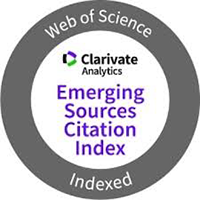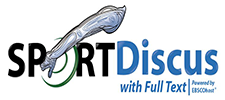En los inicios del olimpismo centroamericano: Pedro J. Matheu
DOI: https://doi.org/10.20868/mhd.2022.23.4601
Texto completo:
PDFResumen
Palabras clave
Referencias
Bayers, Peter L. 2003. Imperial ascent. Mountaineering, masculinity and empire. Boulder: University Press of Colorado.
Beracasa, José. 1976. “From 1926 to 1976. Twelve Central American and Caribbean Games”. Olympic Review, n.º 109-110: 626-9 y 659.
Bermond, Daniel. 2008. Pierre de Coubertin. París: Perrin.
Carpentier, Florence. 2004. Le Comité international olympique en crises: la présidence de Henri de Baillet-Latour, 1925-1940. Espaces et temps du sport. París: L’Harmattan.
Carpentier, Florence. 2018. “Henri de Baillet-Latour: Globalising the Olympic Movement”. En Global sport leaders: A biographical analysis of international sport management, editado por Emmanuele Bayle y Patrick
Clastres, 107-23. Cham: Palgrave-Macmillan.
Chabot, C. 1900. “Le Congrès international d’éducation physique (30 août - 6 septembre 1900)”. Revue pédagogique 37, n.º 2: 605-21.
Chatziefstathiou, Dikaia e Ian P. Henry. 2012. Discourses of Olympism. From the Sorbonne 1894 to London 2012. Londres: Palgrave Macmillan.
Clastres, Patrick. 2013. “Culture de paix et culture de guerre. Pierre de Coubertin et le Comité international olympique de 1910 à 1920”. Guerres mondiales et conflits contemporains 3, n.º 251: 95-114.
Clastres, Patrick. 2018. “Pierre de Coubertin: The inventor of the Olympic tradition”. En Global sport leaders: a biographical analysis of international sport management, editado por Emmanuele Bayle y Patrick Clastres, 33-60. Cham: Palgrave-Macmillan.
Colley, Ann C. 2010. Victorians in the mountains: Sinking the sublime. Franham: Ashgate.
Cordoví Núñez, Yoel. 2014. “Informando desde México: narrativas de la nación cubana en los Primeros Juegos Centroamericanos”. Secuencia, n.º 90: 149-63.
Coubertin, Pierre de. 1917. ¿Qué es el olimpismo?. París: I. Rirachowski.
Coubertin, Pierre de. 1921. “The Seventh Olympic Games”. En Report of the American Olympic Committee. Seventh Olympic Games, Antwerp, Belgium, 1920, editado por Condé Nast Press. Greenwich Conn, 47-58.
Greenwich: The Condé Nast Press.
Coubertin, Pierre de. 1965. Memorias olímpicas. Lausanne: Bureau Internacional de Pedagogía Deportiva.
Debarbieux, Bernard y Gilles Rudaz. 2010. Les faiseurs de montagne. Imaginaires politiques et territorialités, XVIIIe-XXIe siècles. París: CNRS.
Elias, Norbert. 1997. Üben den Prozess der Zivilisation: soziogenetische und psychogenetische Untersuchungen. Frankfurt am Main: Suhrkamp.
Elias, Norbert y Eric Dunning. 2003. Sport und Spannung im Prozess der Zivilisation. Frankfurt am Main: Suhrkamp.
Ellis, Reuben. 2001. Vertical margins: Mountaineering and the landscapes of Neoimperialism. Madison: University of Wisconsin Press.
Gafner, Raymond. 1994. 1894-1994. The international Olympic Committee. One hundred years. The Idea, The Presidents, The Achievements, I. Lausanne: International Olympic Committee.
Guttmann, Allen. 1994. Games and Empires: Modern Sports and Cultural Imperialism. Nueva York: Columbia University Press.
Guttmann, Allen. 2001. “Sport”. En Encyclopedia of European Social History. From 1350 to 2000, editado por Peter N. Stearns, V, 167-84. Detroit: Charles Scribner`s Sons.
Hobsbawm, Eric. 1993. “The Example of the English Middle Class”. En Bourgeois Society in Nineteenth-century Europe, editado por Jürgen Kocka y Allen Mitchell, 127-50. Oxford: Berg.
Hubscher, Ronald, Bernard Jeu y Jean Durry. 1992. Le sport dans la société française (XIXe–XXe siècle). París: Armand Colin.
Jarvie, Grant. 1991. Sport, racism and ethnicity. Londres: Routledge.
Krüger, Michael. 1996. Körperkultur und Nationsbildung: die Geschichte des Turnens in der Reichgründungsära. Eine Detailstudie über die Deutschen. Schorndorf: Hofmann.
Llewellyn, Matthew P. y John Gleaves. 2016. The rise and fall of Olympic Amateurism. Urbana: University of Illinois Press.
Mason, Tony y Eliza Riedi. 2010. Sport and the military. The British Armed Forces 1880-1960. Cambridge: Cambridge University Press.
Matheu, Pedro J. 1917. [Prólogo] a Pierre de Coubertin. ¿Qué es el olimpismo?, 6-7. París: I. Rirachowski.
McGehee, Richard V. 1992. “The rise of modern sport in Guatemala and the first Central American Games”. The International Journal of the History of Sport 9, n.º 1: 132-40.
McGehee, Richard V. 1993. “The origins of Olympism in Mexico: The Central American Games of 1926”. The International Journal of the History of Sport 10, n.º 3: 313-32.
Mejía, Julio E. 1936. Memoria de los terceros Juegos deportivos Centro Americanos: San Salvador, 16 de marzo al 5 de abril
de 1935. San Salvador: Junta Nacional de los Juegos deportivos Centro Americanos.
Memoria de los Primeros Juegos Deportivos Centro-Americanos, celebrados en la Ciudad de México, Estados Unidos Mexicanos,
de octubre al 2 de noviembre 1926. 1926. La Habana: Junta Nacional de los Juegos Deportivos Centro-Americanos.
Montesinos, Enrique. 2017. Los Juegos regionales más antiguos: Juegos Deportivos Centroamericanos y del Caribe. The
oldest regional Games: Central American and Caribbean Sports Games. La Habana: ODECABE.
Müller, Norbert y Ralf Tuttas. 2000. “The role of the YMCA: Especially that of Elwood S. Brown, Secretary of Physical Education of the YMCA, in the world-wide expansion of the Olympic Movement during Pierre de Coubertin’s presidency”. En Bridging three centuries: intellectual crossroads and the modern Olympic movement. Fifth International Symposium for Olympic research, editado por Kevin B. Wamsley, 127-34. Londres: University of Western Ontario.
Nauright, John y David K. Wiggins. 2016. Routledge handbook of sport, race and ethnicity. Londres: Routledge.
Palomo, Fernando. 2019. “Don Pedro Jaime de Matheu: el primer olímpico salvadoreño”. ElGráfico.com, 29 de julio de 2019. https://www.elgrafico.com/gamadeportiva/Don-Pedro-Jaime-de-Matheu-el-primerolimpico-salvadoreno-20190729-0017.html
Polycarpe, Cyril. 2013. “Regional Games as an extension of the Olympic idea: the exemple of Central American Games (1926)”. Stadion 39, n.º 1: 57-74.
Quanz, Dietrich R. 1993. “Civic pacifism and sports-based internationalism framework for the founding of the international Olympic Committee”. Olympika. The International Journal of Olympic Studies 2: 1-23.
Report of the American Olympic Committee. Seventh Olympic Games, Antwerp, Belgium 1920. 1921. Greenwich: The Condé Nast Press.
Thompson, Edward Palmer. 2012. La formación de la clase obrera en Inglaterra. Madrid: Capitán Swing.
Torre Saavedra, Ana Laura de la. 2017. La cultura física en la ciudad de México; recreación, internacionalismos, nacionalismos, 1896-1939. México: El Colegio de México. Centro de Estudios Históricos.
Torres, César R. 2006. “The Latin American ‘Olympic explosion’ of the 1920s: Causes and consequences”. The International Journal of the History of Sport 23, n.º 7: 1088-111.
Torres, César R. 2008. “‘Spreading the Olympic Idea’ to Latin America: The IOC-YMCA partnership and the 1922 Latin American Games”. Journal of Olympic History 16, n.º 1: 16-24.
Torres, César R. 2020. “Completing the account: The complex preparations for the 1926 Central American Games”. Journal of Olympic Studies 1, n.º 1: 37-59.
Wagg, Stephen. 2012. “Tilting at windmills? Olympic politics and the spectre of amateurism”. En The Palgrave Handbook of Olympic Studies, editado por Helen Jefferson Lenskyj y Stephen Wagg, 321-36.
Houndmills: Palgrave Macmillan.
XIª Olimpíada Berlín 1936. Manual de las disposiciones generales y del reglamento de deportes, Organisationskomitee für die XI. Olympiade Berlin 1936 (Comité Organizador). 1936. Berlín: Reichssportverlag.
Young, David C. 2004. A brief history of the Olympic Games. Londres: Wiley-Blackwell.
Enlaces refback
- No hay ningún enlace refback.
Materiales para la Historia del Deporte
http://polired.upm.es/index.php/materiales_historia_deporte
e-ISSN: 2340-7166







